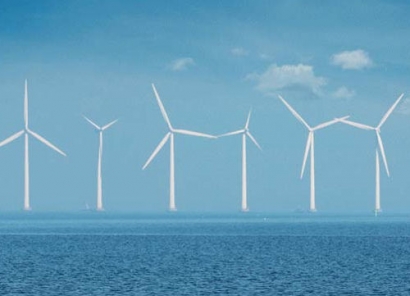
Representing members of the Global Wind Energy Coalition for COP26, 25 CEOs have sent an open letter to leaders of the G20 acknowledging that while some progress has been made in the energy transition, current net zero pledges from G20 countries still put the world on a 2.4°C global warming pathway, well beyond what is needed to avoid the worst impacts of climate change.
Meanwhile, wind energy and renewables installations are currently falling well short of the trajectory needed to meet international climate goals, requiring urgent action to improve energy policies.
“G20 member countries represent more than 80% of global energy-related carbon emissions – so the leaders of these countries hold the power and public duty to transform the world’s energy system,” said GWEC CEO Ben Backwell. “These countries need to get serious about renewables, and in particular wind energy as the clean energy solution with the most potential to help the world meet its Paris Agreement targets.”
The letter is signed by the leaders of the largest wind power companies – including Vestas Wind Systems, Siemens Gamesa Renewable Energy, Ørsted, SSE, RWE, and Mainstream Renewable Power, and associations representing the industry in key geographies such as the UK, Europe, Brazil, China, Mexico, South East Asia and South Africa.
The signatories highlight that the recent roadmap from the International Energy Agency (IEA) shows that annual wind deployment must quadruple from 93 GW in 2020 to 390 GW in 2030 to meet a net zero by 2050 scenario. Both the IEA and IRENA are aligned in the total wind energy capacity required for a net zero scenario which is compatible with a 1.5°C warming pathway, foreseeing a need for 8,265 GW and 8,100 GW by 2050, respectively.
If current growth rates for wind energy persist, the letter argues that global wind capacity will fall dramatically short of the volumes required for carbon neutrality by 2050, with installation shortfalls of as much as 43% by 2050.
“G20 countries have huge amounts of untapped wind power potential which can fulfil significant portions of national electricity demand, but they are barely scratching the surface of what they can deploy. With the current pace of wind power installations across the world, forecasts show that we will only install less than half of the wind power capacity needed to get to net zero by 2050,” said Rebecca Williams, Director of COP26 at GWEC.
To reach this necessary level of deployment, the open letter calls on G20 nations to:
1. Raise ambition for wind power at national level.
2. Implement effective policy and regulatory frameworks for procurement and delivery of renewable energy.
3. Commit to rapid build-out of clean energy infrastructure including grids and transmission.
4. Agree effective and credible carbon pricing mechanisms.
5. Align national and regional finance flows with benchmarks for a net 1.5°C- compliant pathway.
6. Develop cohesive and inclusive policies which dedicate public resource to the shift to a net zero economy.
In the last 20 years, wind energy has demonstrated its ability to increase production exponentially while reducing costs, create millions of skilled jobs and spur large-scale infrastructure investment.
But the letter emphasises that achieving the scale and speed of deployment needed to tap into these benefits and achieve net zero ambitions is unrealistic under the present “business as usual” conditions, and unachievable without decisive and urgent policy change across the G20 countries.
The open letter to the G20 heads of state was also shared with a number of government, energy, finance and institutional leaders, including the leaders of COP26, UNFCCC, IRENA, IEA, IMF, WEF and a number of multilateral development banks.

